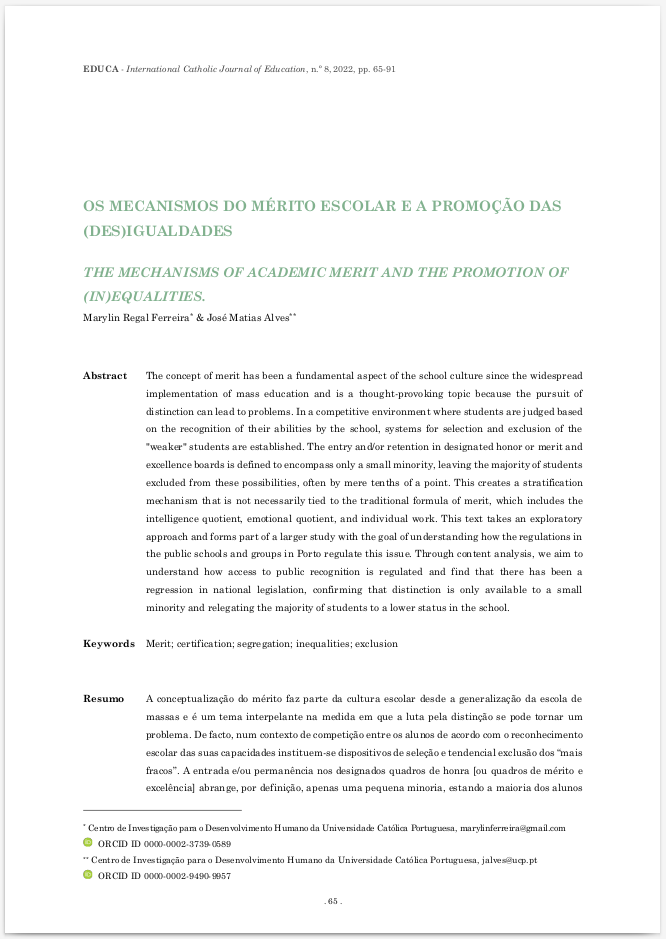The mechanisms of academic merit and the promotion of (in)equalities.
Main Article Content
Abstract
The concept of merit has been a fundamental aspect of the school culture since the widespread implementation of mass education and is a thought-provoking topic because the pursuit of distinction can lead to problems. In a competitive environment where students are judged based on the recognition of their abilities by the school, systems for selection and exclusion of the "weaker" students are established. The entry and/or retention in designated honor or merit and excellence boards is defined to encompass only a small minority, leaving the majority of students excluded from these possibilities, often by mere tenths of a point. This creates a stratification mechanism that is not necessarily tied to the traditional formula of merit, which includes the intelligence quotient, emotional quotient, and individual work. This text takes an exploratory approach and forms part of a larger study with the goal of understanding how the regulations in the public schools and groups in Porto regulate this issue. Through content analysis, we aim to understand how access to public recognition is regulated and find that there has been a regression in national legislation, confirming that distinction is only available to a small minority and relegating the majority of students to a lower status in the school.

